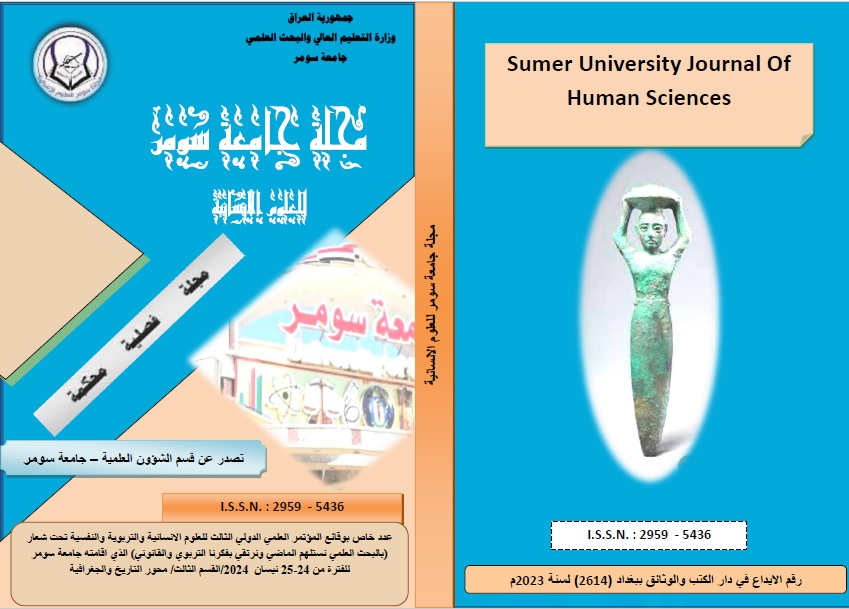Lakshmi Pandit and her position in the United Nations on the policy of apartheid in South Africa 1946-1949
Keywords:
الامم المتحدة، , الابارتايد،, جنوب افريقيا، , الهند البريطانية، , لاكشمي بانديت،Abstract
Lakshmi Pandit was raised in an aristocratic Indian environment and was brought up by her father Motila Nehru and her brother Jawaharlal Nehru. The palace where she lived, Aband Bhawan, was a focal point for communication with the Indian national movement. It played a fundamental role in developing her skills, potential and knowledge of many national goals and ideals, which enabled her to engage in political work from a young age, and crystallize her great ability in terms of oratory, presenting her country's demands and defending the policy of apartheid in South Africa.
Pandit was unique in that she was the first Indian woman to hold the position of minister (Minister of Local Self-Government and Public Health), as well as the first woman in
the world to deliver a speech at the opening address at the United Nations, and the first Indian woman to represent British India at the United Nations.
The issue of apartheid and the treatment of Indians in South Africa was one of Pandit's first concerns, which was raised in all the sessions in which she headed the Indian delegation to the United Nations, specifically in the years (1946, 1947, 1948). At the beginning of 1949, she was nominated to be the British Indian Ambassador to the United States of America.


